During the Dr. Karamba Diaby interview we talk candidly about his path to politics and his road to the German Bundestag. Find out why he joined the SPD, his motto in life and how he experiences everyday racism.
Sophia Lenore: Dr. Diaby, we would like to familiarize our international viewers with your story and career. So we would like to start from your early years.
I read online that you suffered the loss of your parents at an early age, the age of 7, and you were raised by your older sister.
Being the youngest of four children and losing your parents at such a young age…I would like to know how that affected you in your early stages of development as a young man.
Dr. Diaby: I was born 1961 in a small village in the south of Senegal. When I was 3 months old my mother died and when I was 7 years old my father died. Then I grew up by my older sister, who was 17 years older than I.
I really had a happy childhood. That sounds a bit contradictory because I found out much later that my sister and my brother in law were not my parents.
Sophia Lenore: 17 years older?
Dr. Diaby: Yes, my sister was 17 years older and they then really took care of me. I went to primary school in my village and after I finished school with 13 years old I had to leave the village to go to another school to continue my education.
What I experienced was a very strong inter-family solidarity. My sister and her husband treated me equal to their children that came along later on.
I was already there and that really affected me and my future life. To show solidarity towards people who need support. To provide them with a strong shoulder to lean on. That idea is with me all my life.
Sophia Lenore: Sticking together, as a family.
Dr. Diaby: Yes, because, if you put it into an American context then a child like I was would have ended up in an orphanage.
Back home it was customary that a family member would take care of the child and then I could attend school without any issues. So I finished primary school and went on to high school.
Dr. Karamba Diaby: His Parents
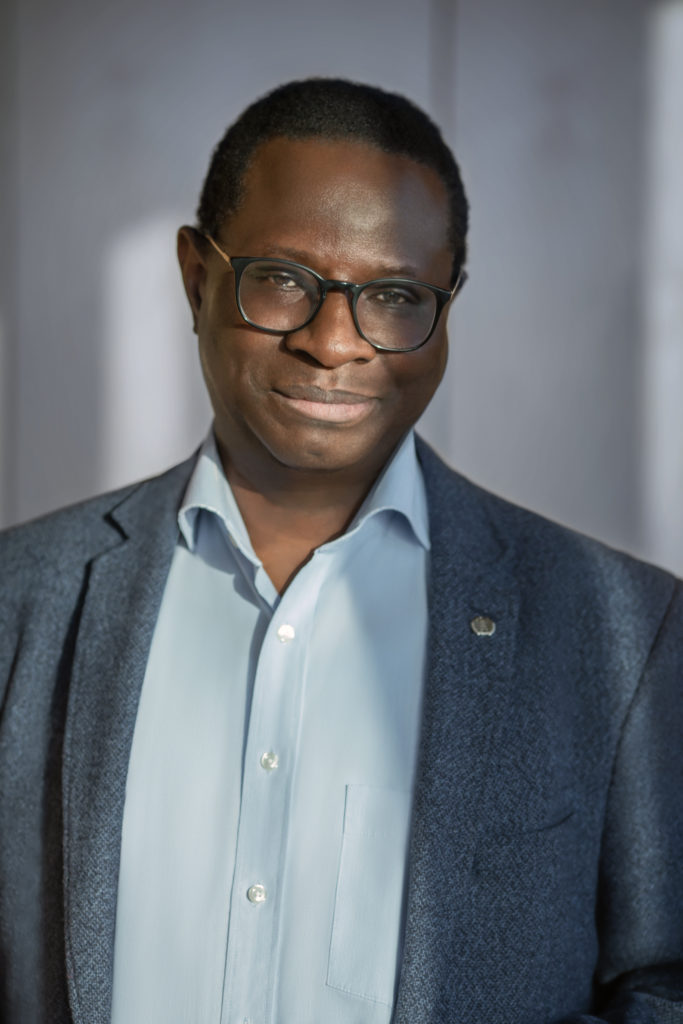
Sophia Lenore: Dr. Diaby, I would like to know if it would be possible to share with us what may have happened to your parents. Was this a loss that was natural or did something occur?
Dr. Diaby: Ok, as far as I know, you have to imagine that my mother died during the early 60’s and my father during the mid 60’s.
I was told that my mother died after giving birth to me. She had complications after the birth and then died 3 month afterwards.
My dad simply had an appendicitis. They tried to bring to him to a nearby town but before he arrived he died on the way. From nowadays perspective something banal.
But that also says a lot about the health systems of countries of the global south. That also became apparent again during the pandemic.
How precarious the situation is in those African countries, especially when pandemic break out, like it it is Covid now but also was with Ebola in some West African countries in the past.
That is a very important issue, especially at the moment.
Dr. Karamba Diaby: His Childhood

Sophia Lenore: Dr. Diaby, you grew up in Senegal in the 1960’s & 70’s. Tell us what it was like to grow up in Senegal during that time.
Dr. Diaby: Growing up in Senegal during the 1060’s was a very normal life. I grew up in a village with 5,000 inhabitants and my “family” were traders and farmers and my sister was a wife staying at home.
I joined the village youth and we helped the farmers a lot. My brother in law was a trader of goods and he sent us to clients to collect commission money.
A small piece of paper telling us what each customer owed.
He had other people selling his goods and they had to pay him the commission afterwards.
So he just wrote us on a piece of paper what he is owed and we gave it to the customers…that’s how we learned as a child.
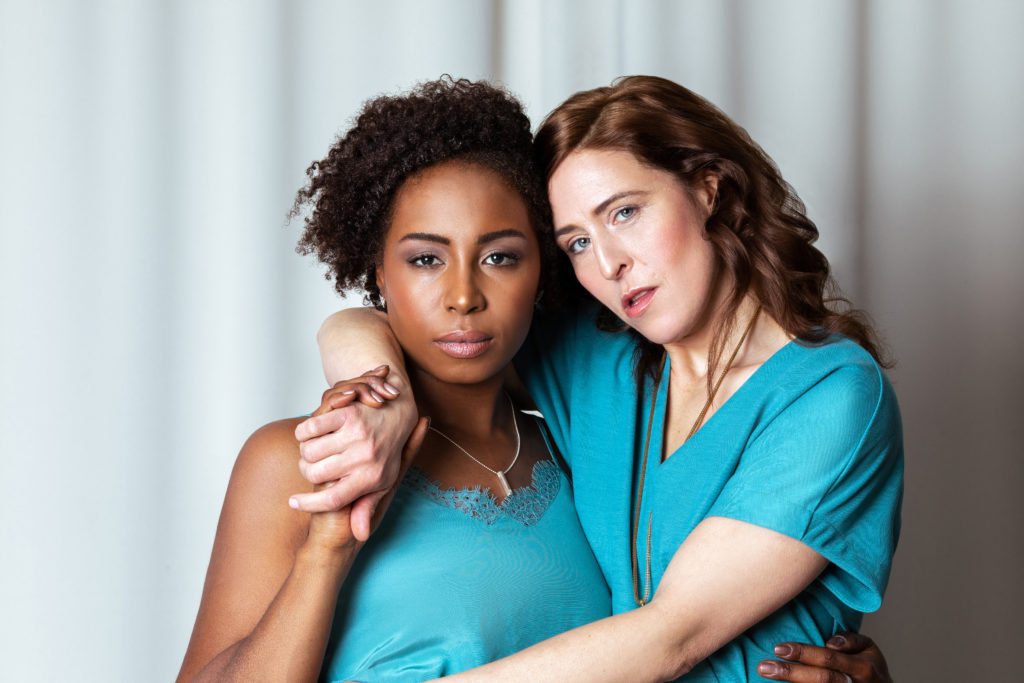
Sophia Lenore: Did that work just like that? Sounds like a difficult job.
Dr. Diaby: No, back in day people were more honest I guess. There were no problems because in the village everybody knows everybody, so there was no friction.
That’s where I learned as a child how to network and work with people and that you can also learn a lot in life how to organize things, etc. That helped me a lot.
Of course, on the one hand, you can talk about child labor and Im’m against child labor in that regard. It would be considered child labor if the kids go to work at that age instead of going to school.
On the other hand, in this case it didn’t negative affect my education. During school hours we were in school and afterwards I helped my brother in law on the fields.
So I would say my childhood in that village was very “fortunate” even though my parents were dead but I didn’t feel it. I was able to engage in activities that taught me a lot for my life to come.
Household Chores & Motto for Life

Britta Steffenhagen: There is also a big difference. The difference between child labor and learning how to take responsibility.
When I attended meetings at the BLO there were kids that work or worked. But the difference is when you are doing things together with your parents then you learn.
I don’t know but I think that in our society in Germany nowadays it doesn’t happened enough anymore.
So that you are doing things with your kids that are not simply going to the zoo. Kids like it at that age to do things.
They are looking forward to it. My daughter always has to sweep but she likes it.
What kind of household chores do your kids have to do?

Dr. Diaby: At home, household chores. Right from the start, my wife and I tried to include our kids in doing them.
We made an Excel spreadsheet where everybody had their things to do such as loading the dish washer, vacuum cleaning, bringing the trash out, etc.
We all included it into the spreadsheet and I believe it is something kids need to learn: that I have responsibilities and everybody has theirs.
It doesn’t matter if someone stays at home to run the household and doesn’t work versus someone who works – one is not more important than the other.
Britta Steffenhagen: The family society.
Dr. Diaby: Yes, it was important to us that our kids learn this principle by example early on.
I must say this is something I learned from my brother in law. He was a self-made man from another region and he was by himself as a teenager.
Then he fought to become self employed as a trader and he always said to his kids and me that you have to work hard to have something.

He said I can feed you and I can finance whatever you want, you don’t need to suffer but you need to know that eventually you have to “run on your own feet”.
That was a saying following the saying: “Nothing comes by itself”. You have to apply yourself.
A similar saying I was reading later by a German politician, Willy Brandt, who said:
“Nothing happens on its own and rarely in the long run”.

And in case we are talking about politics, this was also the reason why I joined the SPD because these parallels between a know German politician, Willy Brandt, and the ideas or philosophy of my brother in law, who was illiterate.
He never left his village, cannot read or write but the ideas and philosophy he taught us was similar to Willy Brandt’s and I said to myself the party of Willy Brandt is your party.
Why Dr. Diaby Joined The SPD
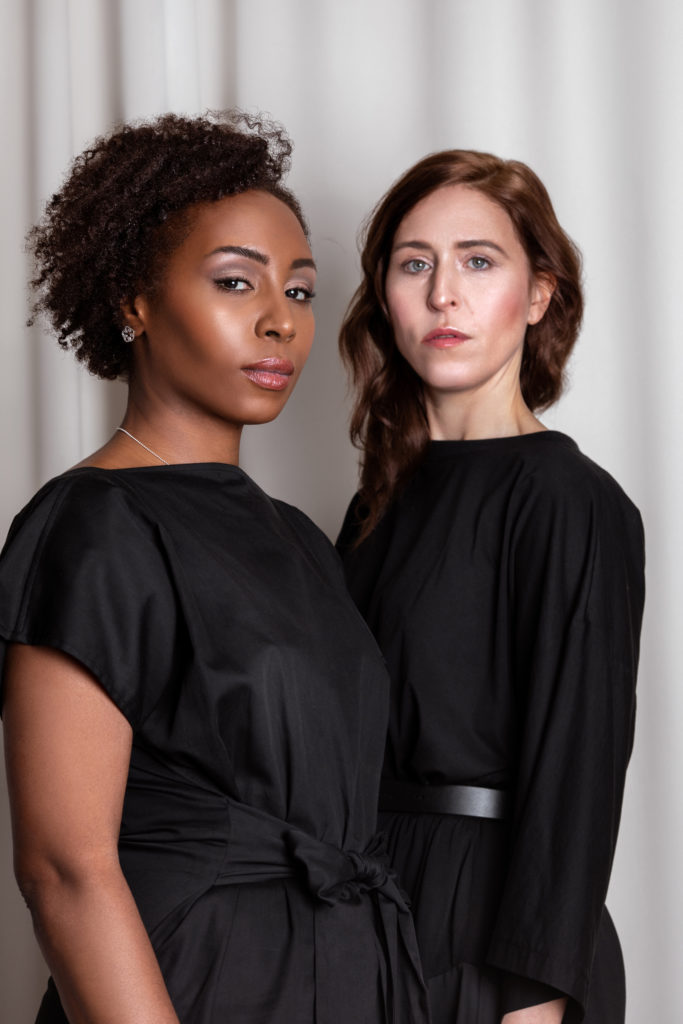
Britta Steffenhagen: So you joined the SPD because of Willy Brandt.
Dr. Diaby: Exactly, among other things.
But before I have to say that I always received solidarity, my entire life.
That means, regardless if my parents are alive or not, whether I have parents who have a lot of money or none, people invested in me.
That I had the opportunity to further my education. I finished high school, then went to university and finally received my PhD. All of it happened with the support of third parties but no parents.
I also received intra-family solidarity, my brother in law and sister.
Then the scholarship that I received to go from Senegal to the DDR and during my studies for my PhD I also received a scholarship.
That means that regardless of my parents financial and social status or the lack thereof I was supported and I was able to move on – this support I experienced my entire life.
So, this is something we have to do for every child, that it has the opportunity to move ahead regardless of the financial situation.
Those are the 2 main ideas why I joined the SPD.
Scholarships

Britta Steffenhagen: There is the African saying “it takes a village to raise a child” and that’s how it is, everybody is involved.
I myself have 2 kids and received a scholarship and was allowed to study in Ireland for 6 months and I’m very appreciative.
Dr. Diaby: From which foundation?
Britta Steffenhagen: DAD back then.
Dr. Diaby: Correct, I read about it. The DAD also paid for my scholarship in the DDR when the DDR collapsed.
Britta Steffenhagen: So we have some similarities.
But you also need to be able to apply for the scholarships and you need to have the ability to apply and I was fortunate with my parents and you had your brother in law.
I always wonder how to keep the hurdles lower so that people can apply for the scholarships.

Dr. Diaby: Yes, and this is exactly one of the main topics we have because the access to formal & informal networks, the fact that you have idols in the family, that you have people in your family that have made certain experiences…kids coming from a non academic families have the problem because they don’t have an uncle or aunt who can give them advise.
If they don’t have an uncle who received a scholarship and knows…then they drop out even if they have good grades.
My kids, my son, can absorb a lot from people who come to visit us, that is a privilege.
Therefore, we have to achieve that all kids have access to the networks where they can get information, that they know where they can get a scholarship.
The disadvantage is there, which is why Willy Brandt as the first German Chancellor introduced “BAföG”. It enables young men and women to choose the training that suits their personal interests, irrespective of their families’ financial means.
Because it is exactly that idea to give every child the opportunity to move ahead.
Now we jumped over a few parts of your question.
Britta Steffenhagen: I’m also a Willy Brandt fan.
Dr. Diaby: That’s nice.
Dr. Diaby A Feminist?

Britta Steffenhagen: When you talk about networks, for us as working women it is still a big issue.
It is still absurd that women get paid less than men for the same kind of work in 2020 and a lot of this has to do with networks. There are thousands of studies confirming it.
Would you say you are a feminist?
Dr. Diaby: I don’t know. I have a hard time classifying it. What I can say is that I’m 100% convinced that the equality of men & women is a must in society.
It’s an enrichment for the society and for me it is self-evident. The point is to utilize the potential of each individual in areas we have deficiencies.
We notice this in Germany: when men get paid 21% more than women something is wrong.
It can happen that women need to “stay home” for some time for whatever reason, natural or not.
Career pathways are different. Women can have “broken” career pathways. That we need to consider with regards to equal opportunities.
I’m completely for it.
We are being insulted at Bundestag from a particular party that always talks about “gender delusion”.
These are people living in the stone-age who do not recognize that supporting the potential of all people in society is important and that includes the potential of the women.
If this doesn’t happen naturally in society then we have to enact laws. I’m happy that we discussed “women in leading positions” yesterday in the Bundestag and that we introduced a quota for women in companies listed on the DAX a few years ago.
I believe that is very important.
I have a daughter and I want her to receive the same pay when she works as my son when they have to work later on. For me this is mandatory.
Networks & How Prejudice Develops
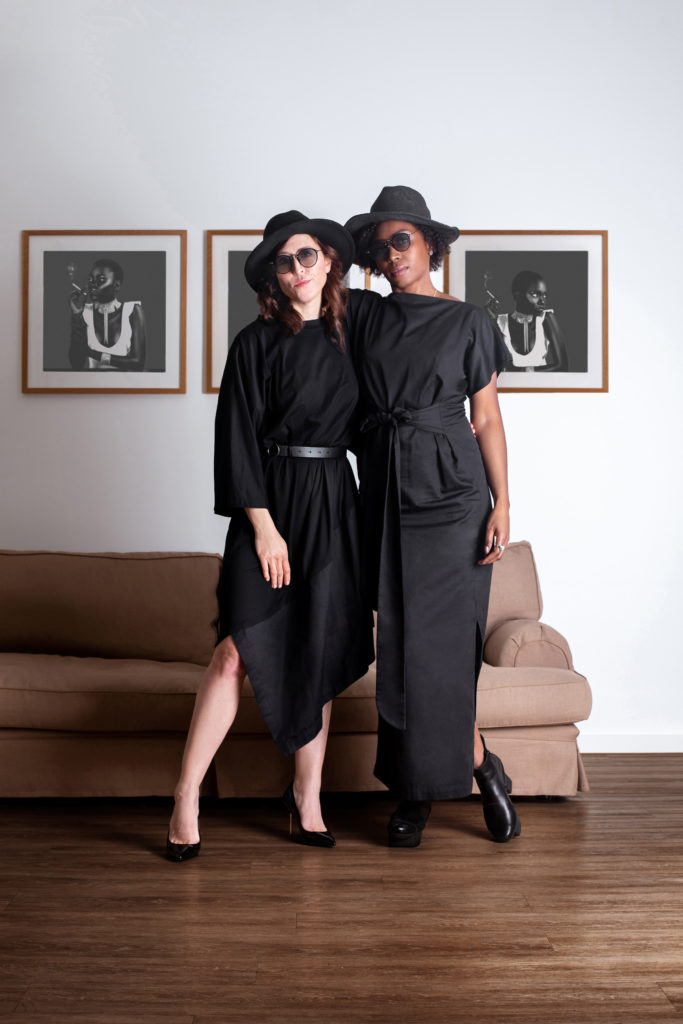
Britta Steffenhagen: Yes, thank you. We are delighted to hear that. I’m quite happy to hear that.
But the point is also to break these networks, it’s not just about equal pay.
Dr. Diaby: Exactly, let’s talk about networks. Networks are important because there are “formal” and “informal” networks.
I also heard the saying that when women are in networks then they are called “String Puller”.
But when a man has numerous networks then they say “ah Mr. Mueller from company X, I know him, and Mr. or Mrs. Meier from company Y, I know her…then you get a positive feedback, like he is a real man. But when a woman does it then she is called “String Puller”.
Britta Steffenhagen: What do you think is the reason for that?
Dr. Diaby: Because there are “mainstreams” in society. If certain narrations are successful because they have been repeated over and over again it leads to prejudice.

Britta Steffenhagen: How do these prejudices develop from men against women?
Dr. Diaby: That has to do with balance of power. If there are power imbalances then it leads to discrimination and exclusions.
Britta Steffenhagen: And people who have the power don’t want to lose it. Men have the power and they don’t want to lose it.
Dr. Diaby: That’s why I’m saying the access to the formal and informal networks are very important. We have to take a look at how we can advance.
If I go to the local bar or join a table tennis club then I meet many more people than somebody who stays at home and has to deal with things at home.
The things at home are also important but that person doesn’t have access to the networks. At this point we have to pay attention.
Wherever we have inequalities the law maker needs to act because it doesn’t balance out on its own. We know that we cannot get it done based on voluntariness.
Still Not A Feminist?

Britta Steffenhagen: Clarifying balance of power, it’s the same everywhere. If it’s goods, environmental problems…you can’t expect people to get rid of their advantages.
That’s what government does, organizing the ant hill. Otherwise, we wouldn’t need you in your position.
And you personally…if it’s too personal then you don’t need to answer. It appears, the few things you say about your wife, that you and your wife discuss things well together.
That’s why my question was if you are a feminist. Because I think how a person does it in his professional life also affects how he does it in his personal life.
Dr. Diaby: Ok, so as for me personally I really cannot classify the term feminist with regards to a man. I can tell you how we live our life.
We live life as equals.
There was a time when my wife stayed at home and the work she does, we have three children, for each child she was at home, her work is as valuable as “paid” work, bringing home the money. This was self-evident to me.

When I mentioned making an Excel spreadsheet for the household chores that includes my daughter, my son, my wife and also myself.
One of my children some times approaches me and says “hey Papa, you haven’t done your household chores yet”.
Then I respond: “Yes, excuse me, you are right. I”m busy here but I haven’t forgotten about it”. My children can approach and remind me and vice versa. This is self-evident for us at home.
We need to value paid and non-paid work equally. You can’t say because he brings more money home he can sit longer and watch TV and the other who earns less money…that doesn’t exist in our household.
This is not just a “Sunday Speech” here what I’m saying but real life in our home. I’m completely convinced about that.
How Dr. Karamba Diaby Came To DDR

Sophia Lenore: Dr. Diaby, during your time in Dakar, you had any country to chose from, what made you chose Germany to further your education specifically?
I mean we know the interest in Willy Brandt but when you were choosing a county to continue your studies, what lure you to Germany besides your interest in politics and Willy Brandt?
Was there a specific reason why you choose this country?
Dr. Diaby: It was a coincidence that I moved to the DDR, I emphasize DDR because that was 35 years ago.
Britta Steffenhagen: A different country.
Dr. Diaby: Exactly. As I mentioned I was engaged in high school and also at the university I was the speaker of the student government association.
Why? Because, on the one hand, I deemed it important that justice exists and to fight against injustice.
Back then I thought it was unfair I didn’t receive a scholarship. That other kids, whose parents were alive and worked, received scholarships…against that situation I fought.
Also that the overall situation for students at the high school and university improved.
Therefore, I was very well informed and via international organizations I found out that there was a possibility to apply for a scholarship.

The socialist countries had an organization called ISB (“International Studenten Bund”) also referred to as “International Union of Students”, that’s how it’s called.
Often times socialist country were members but some capitalistic countries like Canada or Cypress were members too, but a minority.
Headquarter of this organization was in Prague, Czech Republic. That means I didn’t apply in the DDR but in Prague at the ISB.
There was a pot these countries paid into. When you award scholarships then you award them to disadvantaged kids who were engaged.
I was disadvantaged because I had no parents and I was engaged and had good grades.
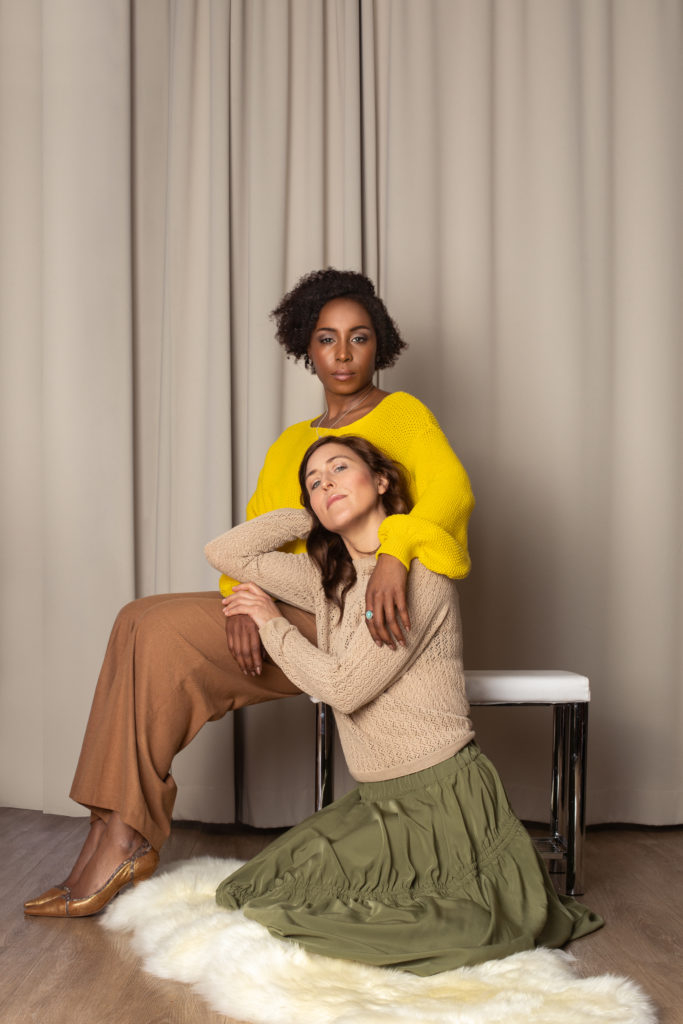
Then I was fortunate to be able to apply for the scholarship. Coincidence DDR, I wanted to explain, was basically that you fill out the form, you can select majors and countries but only socialist countries.
I selected majors like electro engineering, chemistry and agriculture. For countries I selected Czechoslovakia, DDR and Bulgaria or something like that.
I didn’t care about the major or which country, I had to learn a new language regardless.
Because there were no socialistic countries where people spoke French. Could have been Bulgaria, Czechoslovakia or Germany (DDR).
Britta Steffenhagen: Many French nationals will be very sad about that sentence.
Dr. Diaby: I was fortunate. I was selected to study in the DDR. That’s how I ended up in the DDR, pure coincidence but I’m thankful it happened this way.
Britta Steffenhagen: This must have been bit of a shock. Your were coming from Senegal…I was told it is very beautiful there.
Dr. Diaby: Yes Senegal was very beautiful but I was already in Dakar a few year attending the university and…
Britta Steffenhagen: But Dakar / Hanau…oh sorry, Dakar / Halle, is a bit much, that’s not easy, is it?
From Dakar To Leipzig: A Shock

Dr. Diaby: First stop was Leipzig, I learned German for 9 months in Leipzig but the shock was rather that Senegal was not a socialist country and DDR was socialist.
That was a shock because everything was differently organized and then you had to, as an engaged student of the student government who organized protests all the time, stop.
When I came to the university in the DDR I wasn’t allowed to do anything. I was told “you can’t say this, you can say that” and hence they put the breaks on me. That was a shock!
Also, politically, you are not allowed to engage in any activities. You can’t open a new organization.
And the language. I first learned German here. Ok, I learned two German words before. “BMW” and “Bundesliga” but I wasn’t allowed to say those words in the DDR because they were West-German concepts.
Britta Steffenhagen: Exactly the two wrong words.
Dr. Diaby: Yes, correct. When you use the Western terminology people look strange at you.
Britta Steffenhagen: What are other classic phrases? “Kindergarten”. “Rabenmutter” is a favorite German word used outside of Germany.
Dr. Diaby: But not during the time in DDR. Kindergarten, yes. So, ok. It was coincidence that DDR was the country of choice. I don’t regret it. I had to learn German, I learned it 9 month and then I studied.
How Dr. Diaby Became An Activist

Sophia Lenore: During one of your past interviews you were quoted as stating during your stay in Dakar in 1982 that “we were the ones always trying to be emancipatory” and in terms of speaking of yourself, your fellow students at the university, I just want to know, were you very involved in activism at a very young age as a student and what sparked that spirit of activism at such a young age?
Dr. Diaby: There are two reasons. On the one hand, you start to engage yourself due to affectedness and on the other hand due to conviction. For me, it was both.
Conviction because I remember what my brother in law used to say: “nothing happens by itself, you have to do things yourself”.
And when I saw maladministration then I remember him. If we want to change something then we have to do something.
You yourself have to do something. When I attended secondary school I lived with an unfamiliar family.
I didn’t know anybody in that city and then I had to live with a loose acquaintance of my brother in law, there was no student housing.
Then I started to organize in school. Students coming from a far had no place to go. Where were they supposed to go?

So I fought at the school that we would receive a room at least where we can meet and dance and listen to music, do sports or other activities.
Then I moved along to another city to finish my high school diploma. Secondary school was from 7th to 10th grade.
Not too far away from my village, about 60 kilometers (37.5 miles), and we had to stay there because there were no transport links.
After grade 10 I was even further away from my village, about 200 kilometers. Again, I was living with a loose relative I didn’t know before, some distant aunt.
During that time I had the right to live in a boarding school but by coincidence, in that year the boarding schools were abolished because the IMF and World Bank demanded from Senegal to safe money.
Where were they supposed to safe money? Yes, in the education sector.
I thought that was very unfair.

Britta Steffenhagen: Definitely not in the import / export sector.
Dr. Diaby: Correct. That was the time when I woke up in my mind. I saw how international organizations were influencing politics in this country. My politicization started there.
IMF and World Bank demanded from Senegal to safe money and tells the government in what sectors to safe money and myself and others were victims.
I fought for a place for students at universities that didn’t have student housing, that we would get a decent place were we could study and engage in leisure activities.
Forgiveness of Debt

Britta Steffenhagen: Are you for the forgiveness of debt from IMF and World Bank?
Dr. Diaby: Yes, I’m for the forgiveness of debt so that these countries can rid themselves of their dependance.
Going back one more time, during my time at the university in Dakar I was engaged in organizing even though I didn’t have a scholarship while others had one.
That time really made me who I am, that part of my engagement.
Later, when I came to the DDR, I was speaker of the international student government at the university for 3 years out of the 4 years I was there in Halle.
I continued to fight for improvements for students at the university. That was the pre-phase of my political work.
How Dr. Karamba Diaby Experiences Everyday Racism
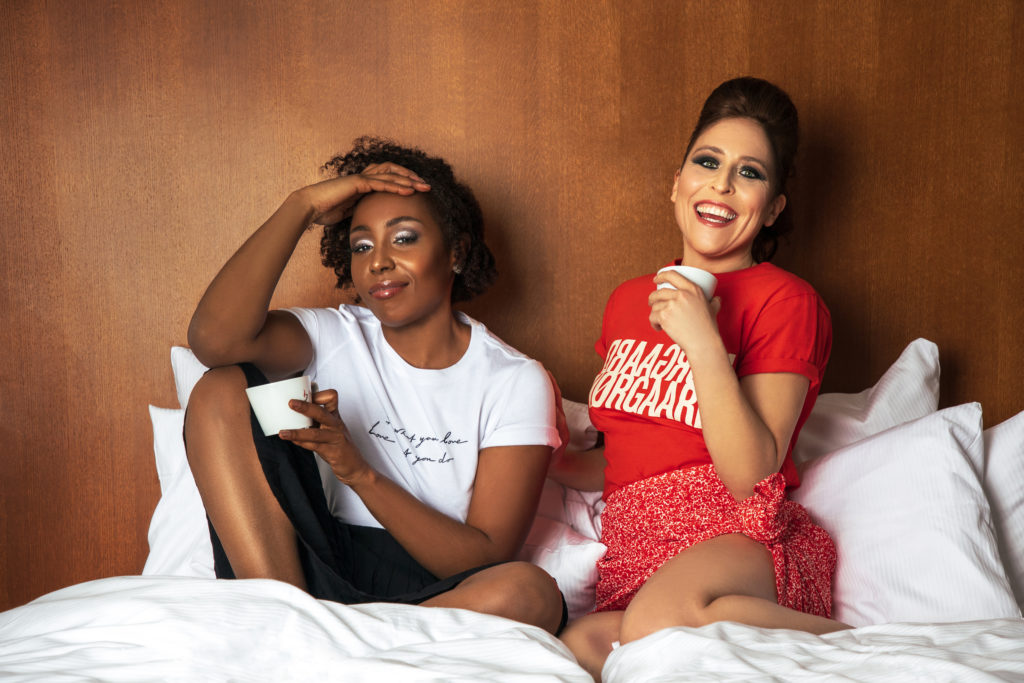
Britta Steffenhagen: At that point in your life one can surely see how one incident leads to the next – a consistent development.
One topic we wanted to discuss with you was the every day racism. I have some Black friends and there are situations you may experience all the time that some white people are not even aware of.
What are situations you experience where you know it’s coming?
Dr. Diaby: Are you referring to terminologies?
Britta Steffenhagen: Yes. Things people say or situation that arise. For example, I’m aware you fight against racial profiling and that is something that happens in every day life.
Dr. Diaby: Yes, I have experienced that. I think there are a few elements of institutional racism one should call out by name.
For me personally, I was a victim of racial profiling. Back then I was commenting from Halle to Magdeburg, another city, and every day I took the train at 7:07 and return at 19:00.
Coincidentally, that day I saw another Black man traveling in the train who I didn’t previously know.
I recognized him and we greeted each other “Good Day” while passing each other and the two of us exited the train again in Halle coincidentally.
So, from Magdeburg to Halle in the train and then we exited.

Coincidentally, we also took the same exit and 2 police officers were waiting at that exit.
One police officer was “dealing” with him and the other police officer was “dealing” with me. They stopped us…and then asked us for identification.
So, only the two of us were stopped out of 100 people exiting the train at the station. 99% of them were people I was commuting with on a daily basis. All of them looked horrified, just like: “Oh God, what’s happening? We are taking the train with these criminals every day…”.

So they only asked the two of us for identification. The other guy, I truly didn’t know the other Black man previously. I didn’t know if he did something in the past or not. So, only the two of us.
I showed them my passport. At first they were a bit skeptical. He takes my German ID card and asked “Where do you live?”.
I replied, if you are a German state employee you must know that you are holding the newest, state of the art German ID in your hands with biometric data. I’m sure there is also an address on it, isn’t it?
Then he was a bit unsettled.
Ortsverein Meeting

Britta Steffenhagen: Of course, people don’t like it when you talk back. I’m saying this from a female’s perspective.
Dr. Diaby: Yes, especially as a German state employee.
Yes, from a female’s perspective you can confirm that…yes, solidarity…then he flipped over my German ID and I thought, oh God, you have a meeting with local authorities, “Ortsverein”.
The SPD is sectioned by “Ortsvereine” and I’m member of the “Ortsverein”.
We were supposed to have a meeting with the main topic regarding “necessity for the accurate labelling of police officers”, coincidentally.
And I wanted to hurry up so that I don’t arrive late. I didn’t want to confirm the prejudice that Africans are always late.
I have to catch my tram on time, I have to arrive on time for my “Ortsverein” meeting.
He was playing around with my ID card because he was a bit in panic.

Then I took my ID as “City Commissioner”. I was member of the community parliament in Halle for 6 years. This laminated self-made ID that city was giving us so we were able to use it when we go to government agencies.
That ID was even more unsure for the police officer…thinking where could he have stolen that one…because that ID also had my address on it.
So I thought, he can take a look at it, see that I’m a member of the city commission and hence know that guy has to be from Halle.
Then I gave him some more opportunity to doubt me because this laminated ID is very low quality.
Then I look at my watch and think “Damn, now you are going to miss your tram. I can catch it every 15 minutes”.
Then I had a genius idea. I handed him my work ID from the Social Ministry Department of the State of Saxony.
Britta Steffenhagen: Handed over the 3rd ID.
Dr. Diaby: Exactly, the 3rd ID with the city logo of Saxony on it. That you couldn’t counterfeit.
That one he took, look at his colleague and said: “With the papers that he showed to us we are going to let him go”.
Mr. Stahlknecht…Who?

Britta Steffenhagen: Then he had a really generous day.
Dr. Diable: Yes, very generous. I told him I’d complain to Mr. Stahlknecht about him. He was the Interior Minister of Saxony.
Naturally, state police has nothing to do with Interior Ministry but he is a state employee of Saxony and he ought to know who the Minister of Interior is.
So I hold him I’d complain to Mr. Stahlknecht about him.
Answer: “Who is that?”
After that I left. I said you can kiss my…excuse me.

Britta Steffenhagen: When you went to your meeting you should have asked for his badge number.
Dr. Diaby: You know, when you are in a situation like that then you can’t remember the correct things to say.
When I arrived at the meeting I told my friends what happened. Do you know why the “necessity for the accurate labelling of police officers” is the right topic of the day?
I just had a situation with a police officer who stopped me and bullied me for 15 minutes. I would have looked at his name tag but there is no name on his badge or uniform.
That’s when I said I’m for the “necessity for the accurate labelling of police officers”.
Changing Awareness

Britta Steffenhagen: Now or never.
When we listen to you it’s a great story and you tell it well but then I think the only thing we can do is to constantly talk about it and tell these stories. Just like the case in “Spiegel” with the teacher in Hamburg who was bullied and said yes, I want the apology.
I think it is the only thing to change awareness. I don’t know, what else can you come up with?
Dr. Diaby: Ok, that’s the topic we are discussing all the time because many people say to me: “Hey, you are doing fine. You make your money, you have recognition, you are an elected official…why do you talk about every day racism? Let others do that”.
I say, “No, stop!”. Injustice remains injustice. Unequal treatment, racism, feminism, homophobia, are all poison for society and it is the job of the people who experience it daily to…
Again, when I’m sitting in the train and I wear a German Eagle they look and say “Hey, does he belong to a constitutional body or something like that”.
Just wearing the badge and a pullover doesn’t tell people I’m a member of German Bundestag. I experience that same things as everybody else.

When I’m sitting in 1st class, in the beginning people were looking skeptical at me.
According to the motto: “Is he lost?”
That’s when people starting talking to me, asking if my ticket was for 1st class or not.
Then I just reach for my ID, it looks similar to the BahnCard100, as a member for German Bundestag, put in on the desk and continue reading.
Or, excuse me, last example. Before the Corona pandemic, there was a “Paper Boy” going through the 1st class car who had various newspapers, like “Sued-Deutsche Zeitung”, “Bild Zeitung”, no, not “Bild Zeitung” but “Die Welt”.

Sometimes they look at me but don’t ask me if I’d also like to have a newspaper. They ask everybody in 1st class “Would you like to have a newspaper” but sometimes they just look at me and continue walking.
Then I say: “Excuse me, could I have the “Sued-Deutsche Zeitung?”
“Oh oh, excuse me, I really didn’t see you there.”
I said “no problem, you don’t have to apologize”.
Or you they come over and ask in English: “Do you speak German?”
In perfect German: “Excuse me, I didn’t hear you well. What do you want from me?”
Hence, we have to talk about it. That’s what wanted to say. You have to talk about it, you shouldn’t make believe it’s a topic for others, it’s our topic.
“Here, I repeat my opinion. Whatever is poisonous you have to talk about it. Whether it be feminism or misogyny or homophobia, racism…doesn’t matter what it is, we have to talk about it.”
What About Death Threats & Hate Mail?

Britta Steffenhagen: And all phono-typical decisions are nonsense from the start I would say. You should look at how a person is towards you and not what they look like or who they love.
There is still a lot of work that needs to be done.
At the moment, it’s not just some time period. Last year was the attack on your office, when your office was shot at.
The 2nd legislative period was tougher than the 1st if I remember correctly. With the AfD.
I know you were interviewed a lot because, back then, you had a lot of death threats and hate mails. I always asked myself if you could say what the content exactly is of those threats & mails.
People always talk about it like “I’m getting them” but I’m wondering what is written in them?
Dr. Diaby: In the texts?

Britta Steffenhagen: Yes
Dr. Diaby: I, of course, avoid to repeat the exact words because I don’t want to make it available.
But, you can image, all kinds of unbelievable things are in it. In general, it’s mainly in connection with my heritage. Where I’m from, where I was born.
The politics in Africa in connection with my person and so on…Africa and the connection with my life here.
That’s being mentioned all the time and the N-word of course is being used a lot. And threats of course. I mean, that has become normal.
But, as I said, I tried not to repeat these words so I don’t make it available for them because otherwise I make them too important.
I quote a lot of this stuff in my new book. There you can take a look again.
Importance Of Speech

Britta Steffenhagen: But speech is important.
Dr. Diaby: Speech can be hurtful. It can be excluding, it can be hurtful. Yes.
Britta Steffenhagen: But the discussion regarding the N-word…I thought it was crazy, two weeks ago.
When people discuss it in German talk shows where people who are not affected by it decide what is offensive and what is not.
Dr. Diaby: Yes, we are confronted with this every day. Someone who never was in the role of the victim but then gets up and talks about or explains what racism means is totally wrong, totally wrong.
As a scientist, of course you can up with hypotheses but when you are in a talk show then you should give people a voice who are affected but not just them but also experts in the field.
And with regards to “Black Lives Matter”, some people have said they invited people who were affected, but they invite Americans.

“Anne Will” had a Black US American live on TV from New York. A live interview regarding the topic of Black Lives Matter in Germany.
I thought that was wrong.
It also could have been another Black person, didn’t have to be me, I don’t want to say that.
There are 1.000.000 (1 Million) people in Germany. They could have invited a Black German and a Black American in order to make comparisons.
What racism means in America vs. what racism means in Germany. But in Germany, you should ask Black people from Germany.
Surprised By Election Win?

Sophia Lenore: Dr. Diaby, before your historic political victory in 2013, just continuing on this note: Germans have never elected a member of parliament who was of African descent or Black.
Despite the strong presence of an immigration population of all races…yet you made history by becoming elected to Bundestag, were you surprised when you won the election?
What were your feelings? Take us through the moment you realized you won.
Dr. Diaby: Ok, I wasn’t surprised because, according to the saying of my brother in law, when I was recommended to be elected I knew that nothing was simply given to me in this country.
Nothing is given to me in this country, I have to work for everything.
Need to have some luck, having networks, as we just talked about and being lucky to have a good partner who is close to you. Being healthy but everything else you have to do yourself.

Therefore, I was not surprised because of that but what surprised me was the reaction of the media.
To be honest with you, I think it proves the media’s shortcomings that somebody who lives here for almost 4 decades, who studied here, got his PhD, worked here and pays taxes is fighting for “Deutsches Kleingartenwesen” (allotment gardening), etc…who started a family, children are growing up here…that it is a “sensation” when a Black person is elected into German Bundestag.
Just because of the way he looks. It is below the belt. Germany has 7 decades of immigration history.
After the 2nd World War, immigration always played a role in Germany. Germany always was an immigration country even if some conservatives realized it very late.
Dr. Karamba Diaby’s Candidacy

Britta Steffenhagen: What you need to understand is that we didn’t import “immigrants” but “workers” and they need to please leave again.
Dr. Diaby: The assumption, that there were “guest workers” in the West, they were coming to work but they will leave again. That’s also true for the so called “Vertrags-Arbeitnehmer” in East Germany.
I always make the distinction between “guest worker” in the West and “Vertrags-Arbeitnehmer in the East…Vietnamese, Mozambican, Angolans, Cubans…you need to distinguish.
So, they thought they come and go.
But again, when it was known I was a candid on the list for Saxony-Anhalt, I was listed in 3rd place, a promising position, hundreds of journalists and members of the media were coming to Halle.
All of a sudden they were there.

The “Spiegel” headlined “Experiment: A Black Candidate Runs In Nazi Territory”.
So they came. First call was from the “New York Times”. They said: “Wow, East Germany, a No-Go area, a Black candidate runs there, we must meet him.
That can only be a Black Sumo wrestler. He is so strong and fights every day against the Nazis, he fist-fights with the Nazis and gets up and the SPD is in need of such a hero so they can make a comeback.
Britta Steffenhagen: That’s not wrong…that the SPD needs a few heroes.
Dr. Karamba Diaby: NY Times Story

Dr. Diaby: They said they wanted to come with me…they ask during what event are lots of people on the streets? Translated, many Nazis who he is going to fight so we can film it.
My team came up with the idea, it was April, the article in the “Spiegel” was in March, so in April they called and said the next major event with a lot of people is May 1st celebrations.
As a good social democrat, that day is the “workers holiday” and you are always part of it. I always took part, regardless of elections. We did info desk with labor unions.
They asked: “Are many people on the streets that day?”
Yes, tons of people.
And he is in the middle of it?
Yes, he is.
Great, then we are coming.
So, they were coming.
They wanted to film it, possibly with some Nazis.
Almost like “can you organize some Nazis for us”.

My job on that day was to go from info desk to info desk and and talk with the respective labor unions or club representatives, regardless of elections.
How is your work? We exchange ideas and the journalist described that I had a chocolate chip muffin in my hands.
I took one bite and then I held it in my hands for 2 hours. I had no time to continue eating because I went from one conversation to the next.
Then they left with a big surprise and all that is written down in my book. There I went more into detail.
What Surprised Dr. Karamba Diaby

Ok, so you asked if it was a surprise for me?
I was happy of course to be elected. When you are elected then you are happy but the surprise was really this media onslaught.
Not only New York Times but also Al Jazeera was In Halle for the 1st time.
Take a guess when they came to Halle for the 2nd time?
After the attack in Halle in 2020. That was the 2nd time Al Jazeera was in Halle. The 1st time was my election.
That was the 2nd time and I also asked them and they said: “Ah yes, we know each other. You were elected then…
And have you been back here since?
No, why?”
Yes, that’s that.

25% Have An Immigration Background
Let me say one thing again. I think the media should be ashamed because we have a population where 1/4th (25%) have an immigration background.
In the German Bundestag we have 8%. But you have to be careful with these 8% because some member of the AfD also have an immigration background but they propagate hate speech with regards to foreigners in Germany.
So you have to be very careful with that number 8% and take it with a grain of salt.
It is not simply because I’m the only Black person but the number of women in Bundestag also went down since AfD. Last election period it was 40% of women, now we have 31%.
My party is not to blame for this, we kept our numbers because we have a mechanism how a man and woman enters the lists.
If a man is in 1st position, then a woman is in 2nd position and so forth. The conservatives and right wring parties handle it differently, they don’t care much about it.

Britta Steffenhagen: An Acknowledgment that you won the elections would have been one thing but just look for a sensational moment is another thing.
Dr. Diaby: I forgot one aspect. Because many journalist have asked this, not you, but they say: ”Come on, be real. They just wanted to send a Black guy to German Bundestag so that everybody thinks East Germans are not racist”.
And I think that statement is racist. It is racist because my performance doesn’t matter due to a quota. 2nd you only got the job because you are Black.
I hear that all the time even when I’m in intellectual circles.
The Election Process

For your information, when I was asked if I wanted to run for elections…I of course talked to my family and friends and they said you have a good chance, you are known, you have worked as a politician in education in schools, you were at many seminars, many people know you…sure, ok.
Then a party friend, “friend”, contacted me who is a child doctor without immigration background from Halle, who said: “Diaby, he can only talk about immigrants. I want to be the candidate”.
Now we had to promote ourselves in each and every “Ortsverein” by ourselves.
I just wanted to remember the saying: “Nothing happens on it’s own”…you have to meet the people on your own.
To shorten this up, then during a members meeting it was discussed who should be the candidate? During a secret vote I won the election with 68%.

So much for them saying they just sent a Black guy over there so that the East Germans don’t appear to be racists.
And that was just the 1st phase.
So, first the members decide who the candidate is going to be, which I won with 68%.
Over 30,000 Votes
That’s how I became candidate and then during the elections the party members, we are only 500 in Halle, elected me with over 30,000 votes, the population of Halle.
That’s why I always have to tell journalists, not all but many, that it is not because the color of Black skin.
And maybe you read it in the press last week that I’m the candidate again for Saxony-Anhalt.
Britta Steffenhagen: Yes, I have. Exactly. I didn’t congratulate you yet.
Dr. Diaby: Not a problem. There were interesting things. The AfD were very interested in our lists.
The candidate for AfD in Bundestag tweeted, he only focused on SPD candidates in Bundestag, “the right wing radical SPD members in Saxony-Anhalt will have a problem”.
If you vote for Dr. Diaby then you are misogynist.

Britta Steffenhagen: Misogynist?
Dr. Diaby: Yes, because if you vote for me then you didn’t vote for a woman.
Britta Steffenhagen: Ah ok.
Dr. Diaby: If you vote for a woman then you are racist…I’m curious to see how the left wing radicals are going to solve it. One can see they are not dreaming. That’s what I want to say with that.
It is a very important issue for them. For him it is a big deal that I’m the candidate for Saxony-Anhalt. So you have to know that the fight for Bundestag will be a tough election fight.
We want to let everybody know what we stand for, for inclusion of society and not division of society.
The Upcoming Elections

Britta Steffenhagen: And it’s going to be a tough time. After the attack on your office everything has changed for the 2nd legislative period and also the rise of the AfD. Those are different requirements.
Dr. Diaby: You have to know there is not only division of society during the elections and rise of the right wing populists but we also have Corona pandemic.
The elections will be affected by Corona and we have a lot of uncertainty in society. Many don’t know how life is supposed to go on, many businesses went bankrupt.
Many families are worried when it comes to their kids graduating.
Now the point will be if we, as SPD, have ideas, a program, and a candidate for chancellor. We want to emphasize our values.

There will also be the opposing side, the right wing populists who make a clear distinction between them and us.
If these guys were here we wouldn’t have a pandemic. They are responsible for all these restaurants going bankrupt, etc. and that is not the future of this country.
It’s about ideas…how we can move forward.
Dr. Karamba Diaby: “Grundeinkommen” – Yes or No?

Britta Steffenhagen: Regarding the ideas…I’m aware you don’t support the idea of “Grundeinkommen” (Income for everybody without having to work for it). Did you change your opinion on Grundeinkommen?
Dr. Diaby: No, I haven’t because my opinion is, and we are getting back to our first issue, it is important to have a good education so you can earn money and have a family.
We want to bring more people into a position where they can live from the money they are earning.
A strong shoulder supports the weak.
Britta Steffenhagen: But it doesn’t prevent people from working.
Dr. Diaby: That’s another issue we would have to talk about for a longer period of time.
As an SPD politician I say if you support people in live when they can’t advance, what happened in my case that they invested in me, then everybody can contribute.

I also want they we can get enough retirement when we worked. I want to see that we take care of social security and we see especially during Corona that our health system is not as strong as we thought it to be.
The first few months we had to import masks from China. In hospitals we count daily how many beds are occupied and vacant.
That means that orderly financing of the health system, as an example, it will only work if we have enough revenue via taxes.
The 2nd part is education. You say you have kids who attend school.
Britta Steffenhagen: Yes, but not now of course. They are fortunate to receive home schooling from me, that’s even better.
Dr. Diaby: Exactly, home office and home schooling. Families are busy with that and what did we find out during Corona? We have to invest a lot into schools now. We need more teachers, adequate rooms…
Dr. Karamba Diaby: Anything Typical?

Britta Steffenhagen: Excuse me for interrupting but thats’ not the point…is there something you would say is typical German when it comes to you or typical African?
Dr. Diaby: I can’t do anything with the terms typically German because I say there isn’t anything typical German. There is the typical young woman, the typical journalist who always says things…can’t say typical journalist.
Typical social worker or something like that. Typical academic but typical German…being German is not all Germans are the same. We are different. It is the melting of different cultural experience.
An academic has a different cultural experience than a non-academic. A person who lives in a village has a different cultural experience, a complete different environment.
Someone who grew up in Berlin and is socialized has a different cultural experience than somebody growing up on a farm.
The richness of society, that is my opinion on it.
Sophia Lenore: Thank you so much for giving us your time.
Dr. Karamba Diaby Credits
Photographer: Phil Halfmann
Creative Director: Sophia Lenore
Lead Hair & Makeup: Sophia Lenore
Lead Wardrobe Stylist: Sophia Lenore
Hair & Makeup: Joanne Sysum & Jasmin Kutsche
Models: Britta Steffenhagen & Sophia Lenore
Hair products by L’Oreal
Makeup by Charlotte Tilbury
Jewelry by Gabriele Iazzetta
Wardrobe by Natascha von Hirschhausen, UNIQLO, Esprit, Ellesse, MADS NORGAARD, RABENS SALONER, Primo Belts, EDC, CASALL
Shoes by TRIPPEN SHOES
Location: Ellington Hotel Berlin

